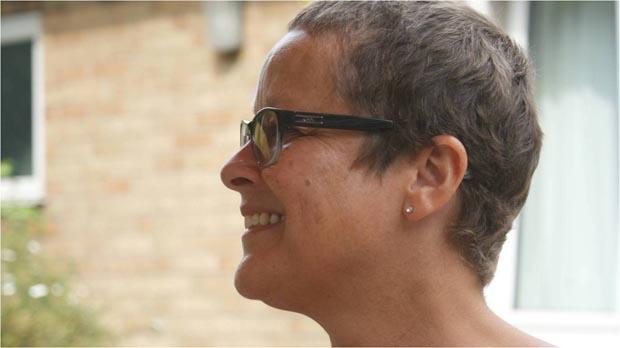
“I had treatment last year and I want to give something back.”
This trial looked at using a steroid cream to help reduce skin reactions caused by having radiotherapy to the breast and chest wall.
 can make the skin go dry, red, itchy and sore around the treatment area. An earlier research study had found that using a steroid cream might help to decrease radiotherapy skin reactions. In this trial, researchers compared a steroid cream with a non-steroid cream on a larger number of people to see if they could confirm this finding.
can make the skin go dry, red, itchy and sore around the treatment area. An earlier research study had found that using a steroid cream might help to decrease radiotherapy skin reactions. In this trial, researchers compared a steroid cream with a non-steroid cream on a larger number of people to see if they could confirm this finding.
The aims of the trial were to find out if using a steroid cream to the treatment area reduced skin reactions caused by radiotherapy and improved quality of life.
The trial team found that the steroid cream significantly reduced skin reactions caused by radiotherapy when it was applied to the breast and chest wall for 5 weeks, from the start of radiotherapy.
120 people having radiotherapy took part in the trial.
The people taking part used a specially designed scoring system to rate how red their skin was around the treatment area. At each hospital visit, 2 researchers also assessed the area.
The researchers looked at all the scores and found that the people who had the steroid cream had much lower levels of skin redness than the people who had diprobase.
Everyone filled in a questionnaire asking how the skin reactions affected their daily life. These are called quality of life questionnaires. On average, people in the steroid cream group reported a better quality of life than people in the diprobase group.
The researchers concluded that having mometasone furoate steroid cream to the treatment area was useful. It reduced skin reactions and improved quality of life in this group of people. The researchers suggest that the steroid cream should be considered as usual care for people having radiotherapy to areas such as the chest, breast or groin where skin reactions are expected.
We have based this summary on information from the research team. The information they sent us has been reviewed by independent specialists ( ) and published in a medical journal. The figures we quote above were provided by the trial team who did the research. We have not analysed the data ourselves.
) and published in a medical journal. The figures we quote above were provided by the trial team who did the research. We have not analysed the data ourselves.
Please note: In order to join a trial you will need to discuss it with your doctor, unless otherwise specified.
Dr Andrew Hindley
Lancashire Teaching Hospitals NHS Trust
NIHR Clinical Research Network: Cancer
Rosemere Cancer Foundation
If you have questions about the trial please contact our cancer information nurses
Freephone 0808 800 4040

“I had treatment last year and I want to give something back.”